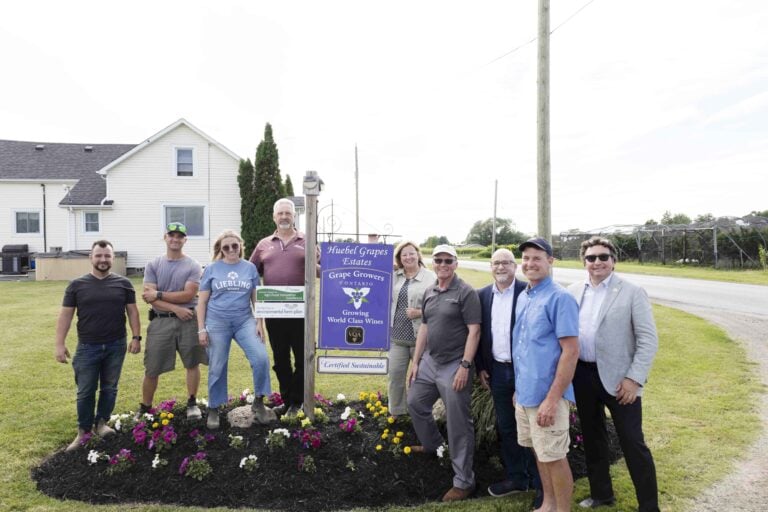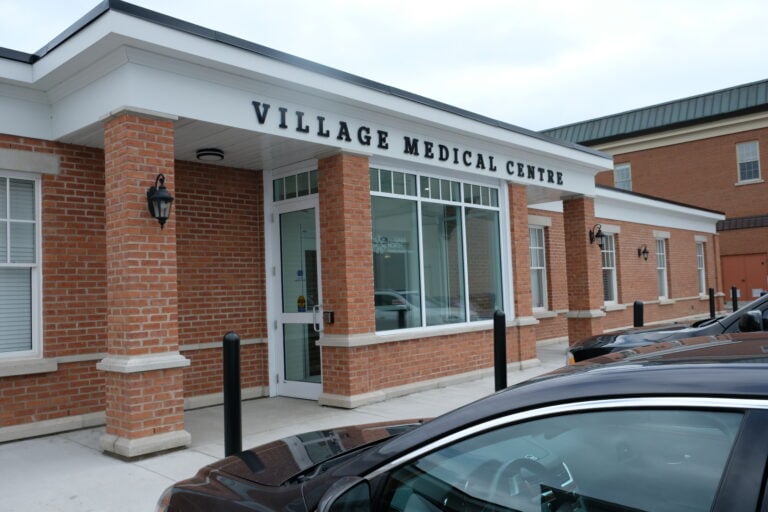Life is precarious for single mom and teen daughter who have lived in town for 20 years
As housing costs rise and fewer long-term rentals are available, Niagara-on-the-Lake resident Lauren O’Malley has struggled to find affordable housing in town for herself and her 16-year-old daughter, Hazel Norris.
With the shift toward more short-term rentals, the town “loses integrity. It loses a true sense of community. It loses longevity,” O'Malley said in an interview.
She has lived in Old Town for more than 20 years and while she feels lucky to still have a place to live, her situation is precarious and looking for a new home has been depressing.
“I’m up at night, I’m awake and sleepless over this,” the single mother said.
“I have a 16-year-old daughter who has gone through two years of a pandemic and her high school just flooded. So, she’s having a kind of biblical year."
“My main goal is to give her some level of stability and peace and happiness and that would be staying in Old Town.”
O'Malley said rental prices in NOTL are already well beyond the pale for most families with kids.
“We saw a two-bedroom basement apartment for $2,000. Two weeks later we saw another basement apartment for $2,700 per month,” she said.
She said it is sad to see children grow up in town, only to leave and never return.
“Anybody I know who has a teenage kid, they go away to university and then they stay away because they can’t afford to come back and live here,” she said.
"What I would hope (our politicians) would look at is — in terms of building a stronger community — you want young people to stay here."
She said she is disappointed in the lack of action from local governments to improve the prospect of living in NOTL for young families.
And the chances of those prospects improving are not high.
“There’s not even a high school here any more to draw them in,” she said.
O’Malley and Mike Barneveld, who lost his rental unit when a new owner said he was moving in and then put it back on the market with a much higher rent, both said the situation is exacerbated by vacation home owners and short-term rentals.
According to the 2016 census and the town’s list of licensed rentals, about 10 per cent of Old Town’s 1,770 residential homes are comprised of short-term accommodation businesses, which effectively treat housing as a commodity.
O’Malley broached the issue of real estate investment trusts, commonly known as REITs.
“That’s real estate strictly as a business investment,” she said.
“And then there’s also corporate and overseas investments. How many huge houses are owned by people who live in South Africa or China, houses that are used once a year, if even that?”
“I’m really struggling to understand why these things are not being addressed,” O’Malley said. “All of those things are really potent in town and I think diminish the affordable housing stock enormously."
Barneveld said there is an argument to be made for restricting the number of short-term rentals.
Compounding the issue of housing availability in NOTL is the fact many people here work in the hospitality industry, a key economic driver for the town, and they don’t necessarily make big wages, Barneveld said.
“The workers have to be able to afford to live here and that’s not happening at all,” he said.
“We live in a town where service industry jobs are a vast majority of jobs here. So, here are all the staff of those places earning minimum wage and utterly unable to live here,” O’Malley said.
Barneveld pointed to the skyrocketing price of gas as further evidence low-wage essential workers should be able to access affordable housing near their place of work.
He acknowledged housing crises are driven by many factors but feels a simple solution for helping provide people with homes in NOTL could be limiting the proliferation of short-term rentals so owners are encouraged to turn them into long-term rentals.
“There’s a ghost town element to all of it, where (NOTL’s) not a highly populated town in terms of permanent population and in terms of building community,” O’Malley said.
She said the town should be working on minimizing opportunities for short-term rentals and property investors to snatch up housing in town.
“Talk to the community, engage, maybe do some nice town halls creating opportunities for people to speak up with their ideas,” O’Malley said.
She said there has been no action by town council on the problem thus far.
"I have this image of them waving their hands like, 'Oh my God! Oh my God!' but at the same time they are covering their eyes. There's barely even lip service."
O'Malley suggested council go the way of municipalities such as Toronto and bar short-term rentals from operating on residential properties unless they have a permanent resident.
She said the solution may need to come from the ingenious and creative residents of NOTL.
There are signs of NOTL’s strong community, she said, noting the popularity of social media groups such as Buy Nothing NOTL and NOTL 4 ALL.
“On the other hand, most of these people are seniors who moved here recently who have a lot of ideas about how the town should be run but haven’t lived here for a long time and don’t have the depth of knowledge of living in NOTL," she said.
So far, NOTL has failed to live up to its mighty potential, she said.
“The scale of the community and the wealth and power within this community together allow for a lot of opportunities that I’m not seeing,” she said.
“I think locals feel pretty disenfranchised.”
She said the enthusiasm of some residents to get involved with the town has been dwindling.
“I don’t really want to use a negative analogy here, but the flow is going down.”
O'Malley stressed that more permanent residents in town means a healthier community in the present and future.
“The deeper the root, the stronger the connection and the stronger the tree.”










